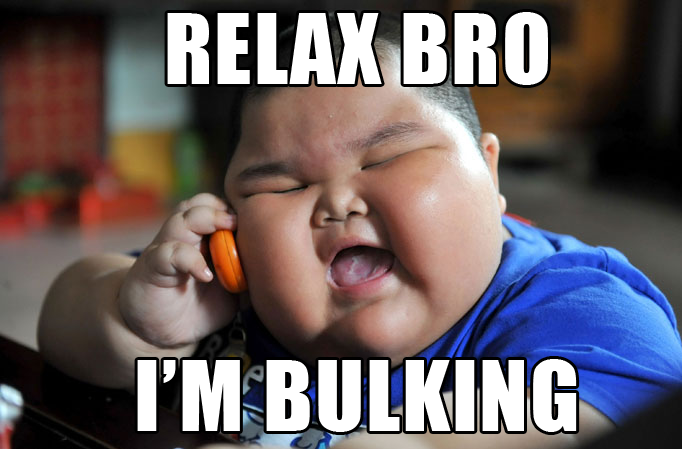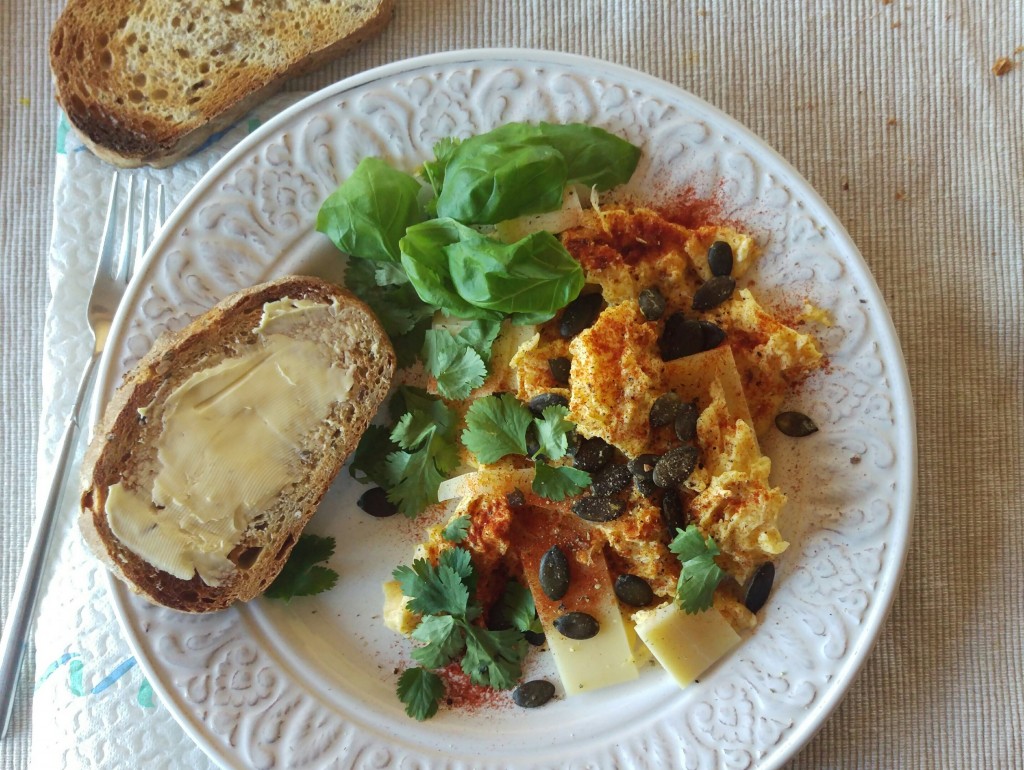If your goal is to gain muscle, lose fat and/or increase your athletic abilities, you need to start paying attention to your diet. Eating right will have a far bigger impact on performance and aesthetics than training hard. You can’t out-train a bad diet, they say. From what I have seen, that statement is pretty accurate.
The importance of adequate nutrition cannot be overstated. That’s right, I said adequate, not “healthy”, “low-fat”, “low-carb” or any of that. Adequate for you! Sufficient nourishment to help fuel your workouts, speed up recovery and maximize muscular adaptation.
Chicken and Broccoli?
Before you head out to stock up on chicken breast, broccoli and cans of tuna, I have something to tell you.
Food selection is not as important as you think!

We’re not talking fast food here, but eating strictly “clean” or “healthy” foods doesn’t produce magic results in terms of body composition, performance or health. How much you eat is what you need to worry about first and foremost.
Even if your goal is to put on as much muscle as possible, you shouldn’t disregard common sense. Don’t pig out at every opportunity if you plan on retaining a decent physique.
“But bro I’m bulking. I gotta eat 4000+ calories a day to build muscle.”
Eating at a large caloric surplus over extended periods (“bulking”) will inevitably lead to excess fat gain. A chronic energy surplus will shift your metabolism into fat-storing mode (Boden et al, 2015).

How do you gain muscle without getting fat in the process?
Cycle between days in a caloric deficit and surplus days. Let’s assume your body needs 2500 calories per day to maintain itself. Eating that amount, you don’t gain or lose any weight.
If your goal is to gain muscle, while staying as lean as possible, eat at a surplus 4-5 days of the week, while being in a slight deficit the rest of the days.
- 4-5 days of 2800- 3200 calories (surplus)
- 2-3 days of 2000-2500 calories (slight deficit/ maintenance)
This way you’ll keep fat gain at bay while giving your body enough fuel to synthesize new muscle tissue. Granted, you’ll gain weight at a much slower pace following this protocol, but your body composition will benefit greatly (more on this strategy here).
Note that these numbers are just estimates. You will have to adjust them to meet your individual requirements.
If you’re a bodybuilder thinking you need to grow as fast as possible, sure, go ahead and put on 25 pounds over the winter months (20 of those pounds likely being fat). But I hardly think gaining weight and losing weight in never-ending cycles is something you want to do.
How Much Protein Do You Need?
There’s something mysterious, something magical about protein. At least in the minds of young aspiring Arnolds. Many believe that in order to gain muscle they need to be consuming protein every 2 hours. But the truth is a little more complex than these protein powder pushing companies want you to know.
“How much protein should I be eating per day?”
The short answer: Not nearly as much as you’ve been told.
But I reckon you need more detail than that, so here we go: Research indicates that you should aim for 0.8-1.2 grams of protein per kilogram of bodyweight to maintain your weight. For an 80 kg athlete that would be between 64 and 96 grams of protein per day.
If your goal is muscle gain, you should aim for 1.6- 2.7 grams of protein per kilogram of body weight. Our 80 kg athlete would thus need between 128 and 216 grams of protein per day.
That’s a wide range, I know. Bottom line is you don’t have to bust out the calculator every time you sit down to eat. Aim for around 2 grams of protein per kilogram per day (= 1 gram of protein per pound of bodyweight). That will supply your body with more than enough building blocks during periods of intense training. You can get away with less to be honest but this is a “safe” amount.
Protein is just… good.
In addition to supplying your body with essential amino acids, the building blocks of muscle, protein has more things going for it.
• Satiety: Protein helps keep you full, more so than any other macronutrient
• Thermic effect: Your body has to use more energy to assimilate protein
• Metabolic advantage: Adequate protein intake creates a hormonal environment conducive to muscle gain and lean mass retention

More isn’t better, however. There’s no need to eat a very high protein diet (> 2.5 gr per kg of body weight). You’ll just end up bloated and fat. Research also indicates that a high protein diet may lower testosterone (read, read). So be smart and eat reasonable amounts. (Also make sure to read this piece on protein requirements)
I’ve talked about the importance of tracking food intake extensively. Regardless if you’re trying to gain weight or lose it, start monitoring your diet.
Energy Sources
The main energy sources of the human body are fats and carbohydrates.
Some people prefer to eat a higher carbohydrate diet while others look and feel better relying predominantly on fat for fuel. Again, highly individual.
How do you figure out under which category you fall? Cycle between days with a higher carb intake and days of higher fat consumption. Assess how you look and feel in the following days.
Use that information to further optimize your individual approach, but NEVER fully eliminate or heavily restrict a certain macronutrient. You need them all to be at your best. Also, if your goal is to get lean, don’t combine high fat and high carbohydrate foods. Choose your fuel wisely.
The ideal macronutrient ratio (percentages of fats, carbs and protein in the diet) doesn’t exist. Flexible macronutrient ratios are the only logical (and natural) answer. Eat according to your current needs. Consuming the same macros every day has no connection to reality! Yes, it can work, as evidenced by bodybuilders and physique athletes, but it’s far from ideal.
Never use someone else’s standards. Figure out what works best for you! Track your food intake. Analyze and optimize. And lastly, eat the foods you like. Your body has food preferences and cravings for a reason.
Lean Muscle Diet:
• Eat a protein-rich diet with sufficient amounts of energy substrates (fats and carbohydrates)
• Cycle between days of higher and days of lower calories
• Eat the foods you like in the right amounts for your goals
• Don’t make eating a science project
Stick to the plan and build the body of your dreams. Easy. Any questions or comments? Talk to me.
Thank you for reading
Victor
Resources
Boden, G. et al (2015). Excessive caloric intake acutely causes oxidative stress, GLUT4 carbonylation, and insulin resistance in healthy men. In: Science Translational Medicine 09 Sep 2015: Vol. 7, Issue 304, pp. 304re7
Sehr cooler Artikel!
Thx!